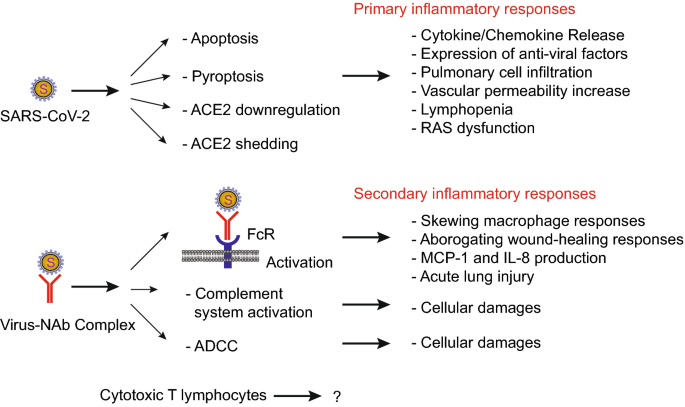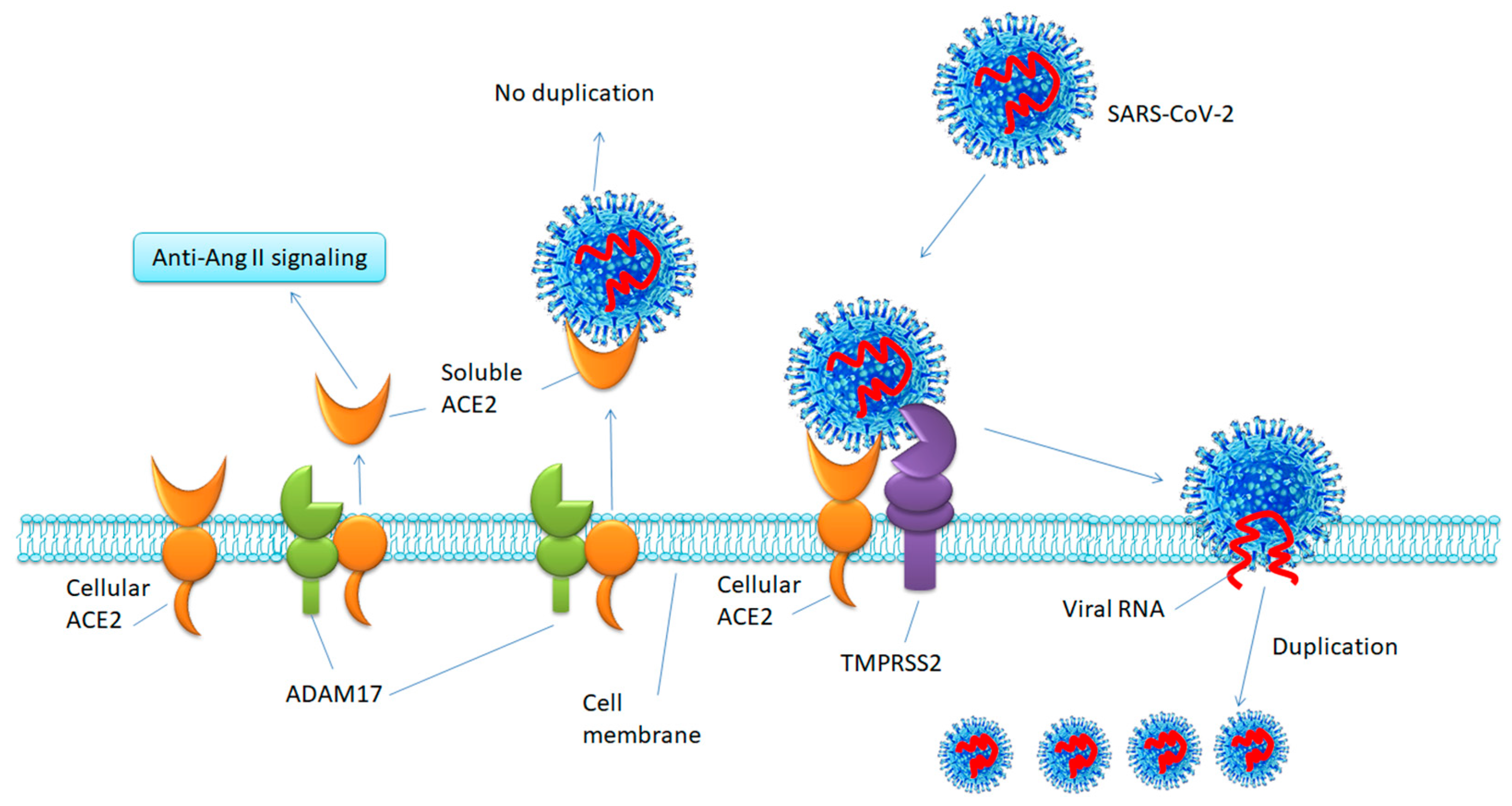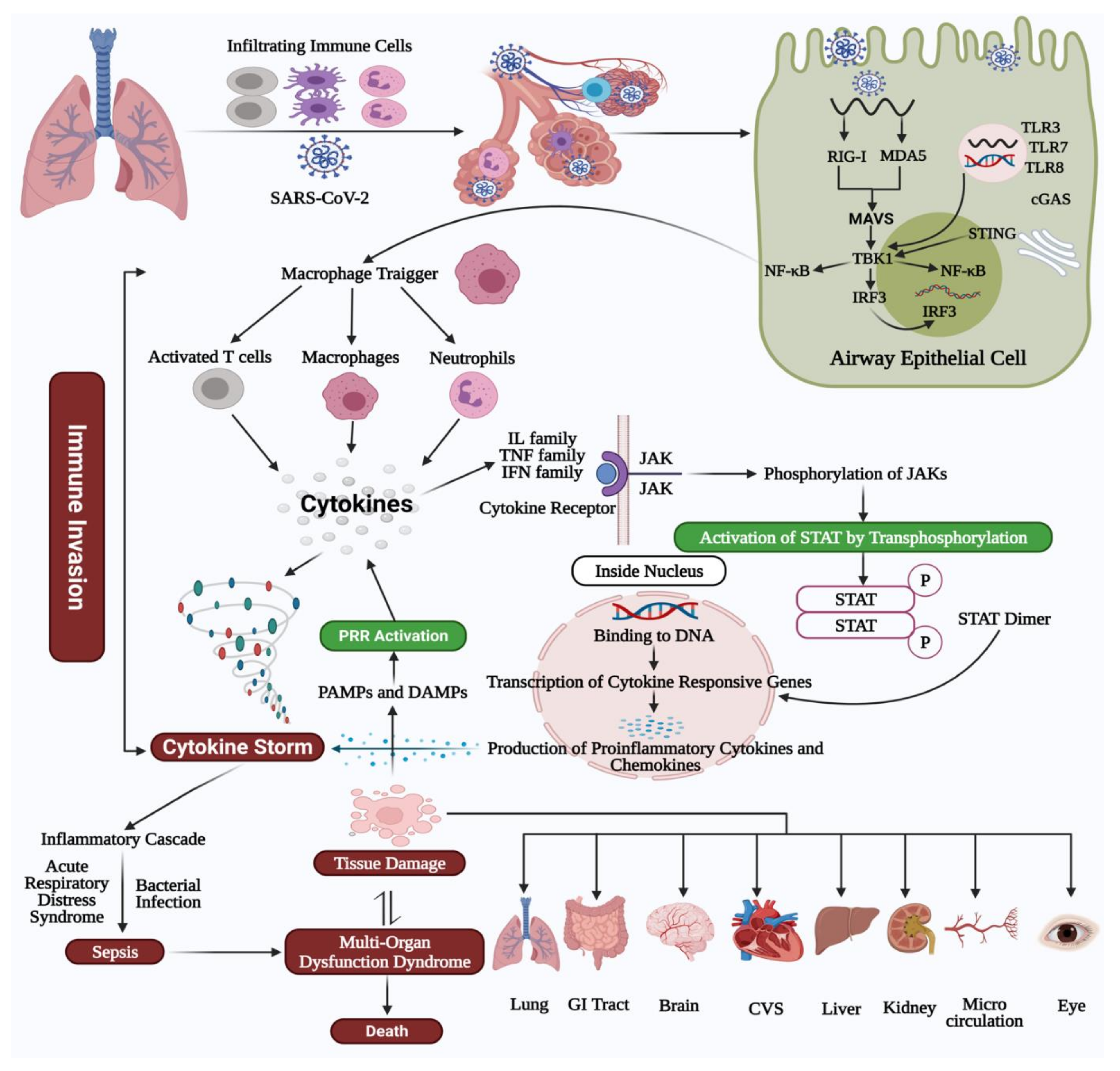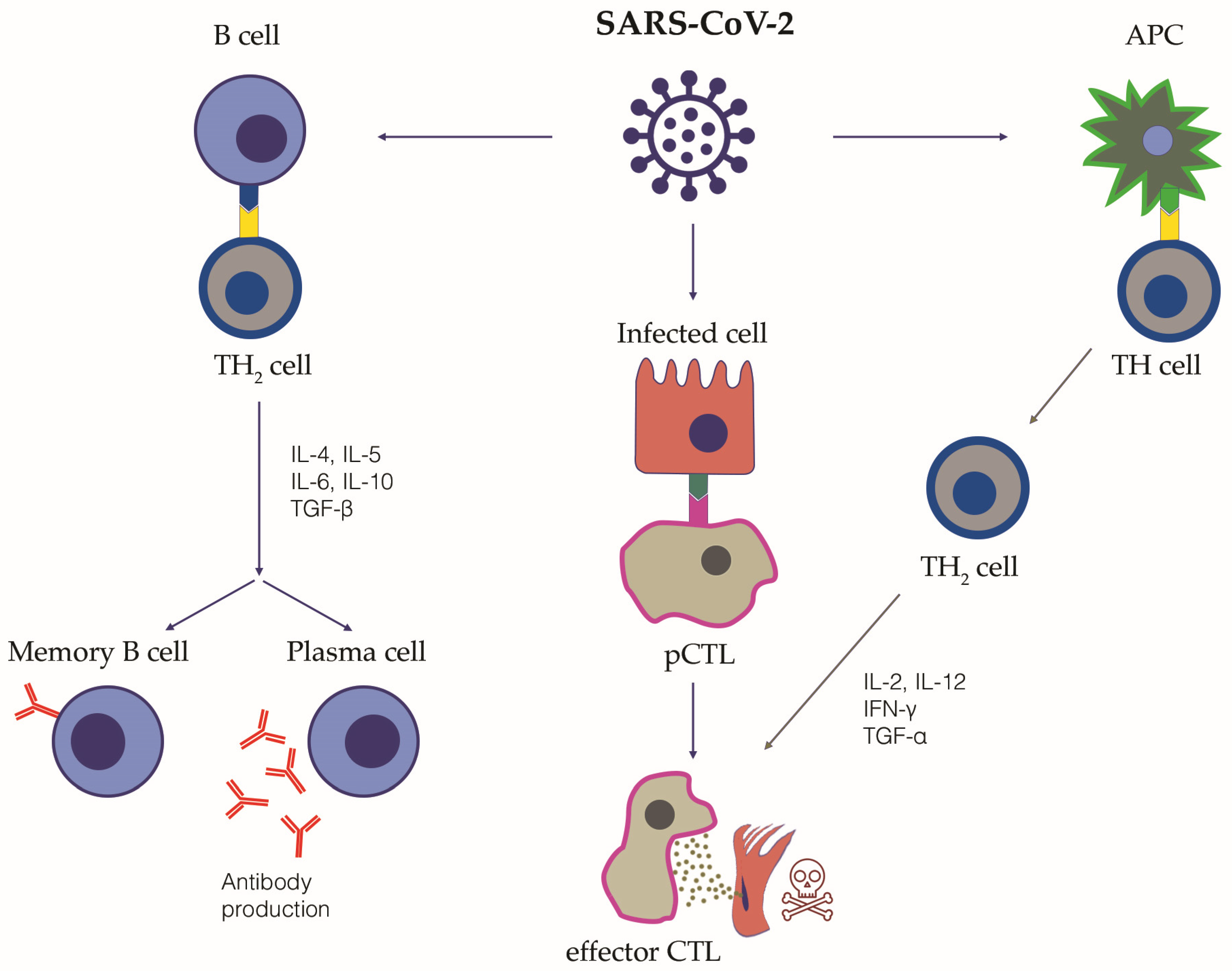Understanding SARS-CoV-2-Mediated Inflammatory Responses: From
Por um escritor misterioso
Descrição
Currently there is no effective antiviral therapy for SARS-CoV-2 infection, which frequently leads to fatal inflammatory responses and acute lung injury. Here, we discuss the various mechanisms of SARS-CoV-mediated inflammation. We also assume that SARS-CoV-2 likely shares similar inflammatory responses. Potential therapeutic tools to reduce SARS-CoV-2-induced inflammatory responses include various methods to block FcR activation. In the absence of a proven clinical FcR blocker, the use of intravenous immunoglobulin to block FcR activation may be a viable option for the urgent treatment of pulmonary inflammation to prevent severe lung injury. Such treatment may also be combined with systemic anti-inflammatory drugs or corticosteroids. However, these strategies, as proposed here, remain to be clinically tested for effectiveness.

Understanding SARS-CoV-2-Mediated Inflammatory Responses: From Mechanisms to Potential Therapeutic Tools

Toll-Like Receptor 4-Dependent Platelet-Related Thrombosis in SARS-CoV-2 Infection

Eje Renina Angiotensina, Enzima Convertidora de Angiotensina 2 y Coronavirus

Viruses, Free Full-Text

Targeting stem-loop 1 of the SARS-CoV-2 5′ UTR to suppress viral translation and Nsp1 evasion

Defining the features and duration of antibody responses to SARS-CoV-2 infection associated with disease severity and outcome

Inflammatory Response Leads to Neuronal Death in Human Post-Mortem Cerebral Cortex in Patients with COVID-19

Vaccines, Free Full-Text

Tobacco product use and the risks of SARS-CoV-2 infection and COVID-19: current understanding and recommendations for future research - The Lancet Respiratory Medicine

SARS‐CoV‐2 Alpha, Beta, and Delta variants display enhanced Spike‐mediated syncytia formation

Biology, Free Full-Text
de
por adulto (o preço varia de acordo com o tamanho do grupo)







